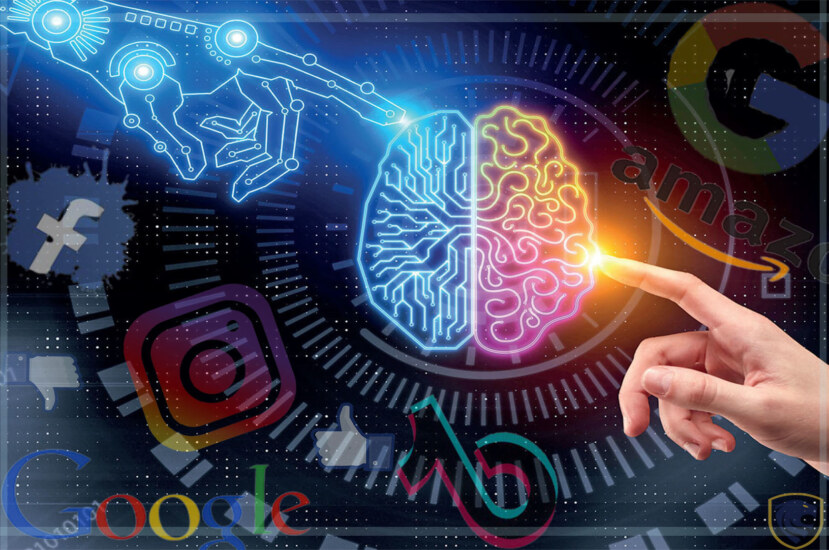One of the most popular topics of discussion in the tech industry is a question that has been looming in our collective consciousness since long before it was a topic of conversation: “Will Artificial Intelligence takes over Humans?” The answer continues to divide opinion, but there’s no denying that AI is poised to change our lives forever. Here’s what you need to know about this emerging technology and its impact on our future.
The way we live, work, learn and socialize is set to change dramatically with the arrival of AI-driven machines. These machines will have vastly superior capabilities when it comes to an understanding of human language and thought patterns with an accuracy that surpasses anything ever seen in history.

Are we ready for artificial intelligence?
The main problem we’re facing right now is that we aren’t ready for this. Just like the creation of the Internet, there’s a substantial gap between what AI can already do and what it can achieve in the future. The gap between computers and humans is shrinking at an exponential rate. But there are still many things that are more difficult to achieve with automation than with people.
What does the future of humanity look like, with advances in Artificial Intelligence? What if machines can think just like humans? Do you think it’s possible for computers to have human rights too? Is the future of work going to be radically different from today? How are artificial intelligence systems being used at present, and what are some long-term projections about their future impact on our lives and work relations.

How will the workforce be affected by AI?
Many intelligent people are concerned about the future, especially when it comes to how AI will affect their lives. How will the workforce be affected by Artificial Intelligence? Will your job be safe? What if machines can do everything humans can do?
If You Thought The Internet Was Amazing, You Haven’t Seen Anything Yet.
The Internet has already changed our world forever. But it’s just one baby step on a journey of staggering proportions, and we’re about to see the dawn of a new world.

What is Artificial Intelligence?
When we talk about Artificial Intelligence and Machine Learning, we’re really talking about technology that will change our lives forever. But what is AI? It’s sometimes hard to explain to people who don’t know the latest buzzwords. So let’s clear it up first by explaining what AI is as opposed to other fields such as Machine Learning and Deep Learning.
First, there are three basic types of machine learning: supervised learning, unsupervised learning, and reinforcement learning.
The first type of machine learning, supervised learning, involves using artificial neural networks to learn from and make predictions about data. It’s called supervised because the system is trained and “supervised” by human experts. Unsupervised learning involves letting the neural network explore on its own without supervision by humans. And reinforcement learning entails giving computer feedback on how well it did when trying to solve a problem. When it fails, it adjusts its actions until it succeeds.
Google AI
That’s pretty basic, but here comes the part that really blows your mind. Google has already built a computer that is capable of teaching itself how to play the game of Go without any assistance from humans. And it’s doing this using Deep Learning techniques.
Google uses this same technology to generate computer-generated captions for its Google Street View images, which would be impossible for humans to do. And artificial intelligence helps Google search engine to answer your questions much more accurately than it did back in 2011 when it first started using AI technology. This technology has also been used to help detect skin cancer, fight cybercrime and improve food production.
These are just a few of the many ways that Google uses AI. And this progress has only happened in about the last ten years or so. So what will happen when machine learning can be used to accomplish even more tasks?

Where Are We Going? Where Is All This Technology Taking Us?
When I was growing up, technology was nowhere near where it is today. So it’s hard to even imagine what the future might look like. But there are some people who are trying to figure out what will happen when machines become smarter than humans, not just in terms of intelligence but also their ability to perform physical labor.
Mason Gross is a professor at Carnegie Mellon University and a frequent keynote speaker at AI conferences. And he thinks AI will eventually replace most human workers in the next five to ten years. So what would happen if robots took over the workforce? Here’s what Mason Gross thinks will happen:
1. In an economic sense, people would still be pretty well off because there would be plenty of things that humans could do that machines couldn’t yet do without missing something that humans can’t.
2. But there would definitely be some consequences of this, like unemployment.
3. And, maybe more significantly, the people who would be the most impacted were those who made their living by working for corporations or governments.
4. And they would become “unemployable” because machines replaced them.
5. This means that there would have to be new forms of social support for these people who didn’t relate to their job or net worth. This could include things like reduced taxes and perhaps even universal health care, where everyone gets access to free healthcare regardless of whether they’re employed or not.
6. But, of course, you could argue that this is all best-case scenario stuff, and there’s no guarantee that AI will be able to do everything that human workers can do.
7. The other possibility is that it will take longer for machines to perform all the tasks that humans can. So you would have a lot of time between now and then to figure out how to work with AI technologies instead of trying to stop them or regulate them or restrict them so they wouldn’t replace human workers.
machines or people?
Some experts believe that computers will soon be able to match the level of human intelligence. This means that computers will outperform us in areas such as chess, Jeopardy, and Go. But there are other tasks deemed too complex or creative for computers to excel at. There’s no doubt that the gap between humans and machines is closing, though. And if this gap is maintained indefinitely. It’s inevitable that AI will overtake us in key areas because it will become cheaper and more efficient to use machines instead of people.
Watch video to learn more…..
[embedyt] https://www.youtube.com/watch?v=Ius996u9GRU%5B/embedyt%5D




